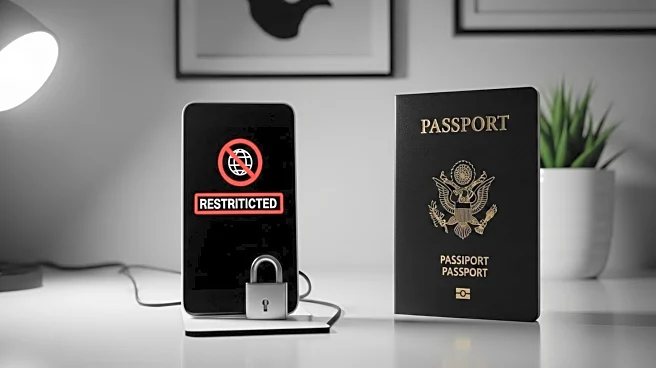What's Happening?
A Prince Edward Island man, Daniel Desmond Crowder, has been subjected to a terrorism peace bond, which imposes strict conditions including the prohibition of internet access and holding a passport. The RCMP sought this peace bond due to concerns that Crowder might commit a terrorism offense. The conditions stem from an investigation where officers seized 3D printed firearm components from Crowder's residence in February. Crowder faces eight charges related to firearms manufacturing and possession of computer data for manufacturing firearms. The peace bond, effective for one year, includes 29 conditions such as carrying a copy of the bond when leaving home and obtaining written consent for out-of-province travel. Crowder is also prohibited from accessing social media sites and applying for travel documents.
Why It's Important?
The imposition of a terrorism peace bond on Crowder highlights the preventive measures law enforcement can take when there is a perceived threat of terrorism. This case underscores the balance between individual rights and public safety, as the conditions significantly restrict Crowder's freedom. The prohibition of internet access reflects concerns about the potential for online radicalization or communication with extremist groups. The case also illustrates the challenges in addressing threats that involve emerging technologies, such as 3D printing of firearms, which pose new risks to public safety. The peace bond serves as a tool to mitigate potential threats before they materialize, emphasizing the importance of proactive law enforcement strategies.
What's Next?
Crowder must adhere to the conditions of the peace bond for its duration. Any violation could lead to further legal consequences. The case may prompt discussions on the effectiveness and ethical implications of peace bonds in preventing terrorism. Law enforcement agencies might continue to monitor Crowder's activities closely to ensure compliance. This situation could also lead to broader debates on the balance between civil liberties and national security, particularly concerning restrictions on internet access and travel.
Beyond the Headlines
The use of a terrorism peace bond raises questions about the legal and ethical dimensions of preemptive restrictions based on perceived threats. It challenges the notion of presumption of innocence, as Crowder's charges have not been tested in court. The case may influence future legal standards and policies regarding the use of peace bonds, especially in cases involving technology and online activities. It also highlights the evolving nature of threats in the digital age, necessitating adaptations in legal frameworks to address new forms of potential terrorism.









